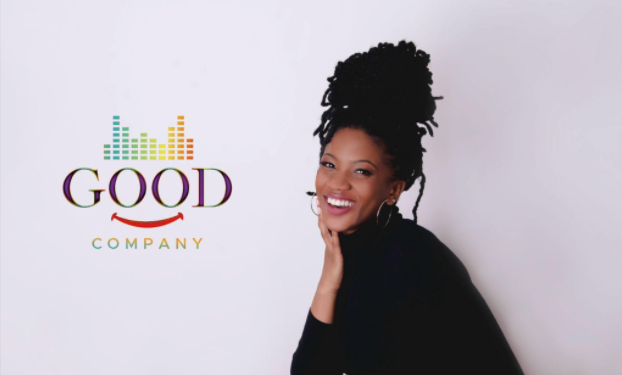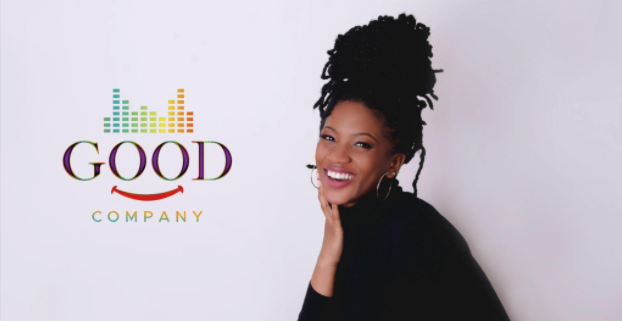Nina Gumbs cultivates Good Company

When you think of a career in dance, you may think of all its glitz and glamour. However, Nina Gumbs, a senior majoring in dance, simply wanted to know how to afford rent while being a professional dancer.
Dance has been in Gumbs’ life since she began at seven years old at a local studio in her hometown near Washington D.C.
“Dance has just been something I have always understood,” Gumbs said.
After years of training, she came to USC to major in dance. Gumbs started working with various commercial artists in Los Angeles shortly after coming to USC and began to ask herself many questions about dance and its industry. She questioned why dancers consistently had monetary issues, why there wasn’t generational wealth within dance and why dancers felt cheated out of certain monetary aspects.
“Dance as a market has not changed, art has progressed, music has progressed, entertainment as a whole has progressed, dance, honestly, has not progressed,” Gumbs said.
She noted that the dancers on Soul Train, a popular dance show from the 70s, were paid with fried chicken and dancers today are still being paid in a similar form of payment.
“I think dancers are still economically mistreated or just unfairly treated when it comes to compensation or hours or just recognition,” said Wyeth Walker, a senior majoring in dance.
Looking for answers to her questions, Gumbs confided in Bobby Shields, a family friend. His answer was to start a business. So, along with Shields, she took the initiative and created Good Company LLC.
“Good Company is really considered to be a family tool for every single dancer in the world,” Shields said.
The mission of Good Company is to provide “all-encompassing services that merge dance and sound business decisions to create better work, a better dance experience,” according to Gumbs. The company works to educate dancers on how to read contracts, what to look for in a contract and how to advocate for oneself within the dance industry.
Good Company is “raising a new level of awareness in the [dance] industry,” according to Walker.
“Good Company focuses on helping people understand how to more equitably and fairly treat dancers, especially when it becomes the people across the casting table,” Walker said.
Besides majoring in dance, Gumbs is also minoring in entrepreneurship. For Gumbs, Good Company fused these two subject areas and passions of hers; the knowledge she received from her courses in entrepreneurship allowed her to question what business structures make up the dance industry, Gumbs said.
“I think that is the key to understanding how we can better ourselves … you can change what you can understand and if you don’t understand that, then it’s really hard to change,” Gumbs said.
Establishing Good Company as a student provided Gumbs with the opportunity to help her fellow peers with their creative endeavors. Ciara Billups, a senior majoring in dance, said she used Good Company’s resources while the company was still in its early stages.
“I had a music video I was dancing in, and I did not know the artist. I was a little bit nervous going into it, and I was also asked questions about what my base pay rate was. I did not have many opportunities like that before, so I reached out to [Gumbs] and asked her,” Billups said. “She helped me put together a contract that also helped me negotiate pay. It was just very helpful all around and made the experience a lot more professional than I think it would have been if I did not work with her and Good Company.”
Billups felt that her experience working with Good Company was helpful and made the experience feel more organized and professional — something she worried would not have happened without Gumbs’ help.
Similarly, Anthony Tette, a senior majoring in dance, said he was drawn to Gumbs’ services because of the way it bridged the gap between the artist and the director. Tette worked alongside Good Company during the summer of 2021 for a project where contract and safety issues arose.
“At that moment, I panicked, and I thought to call Gumbs because I knew that she had started Good Company,” Tette said. “She was so receptive. [Gumbs] and her manager told me what my rights were and what I could do to help solve the situation.”
Gumbs, with her company, acts as the middleman, Tette said. She interacts with two systems that hardly communicate with one another from an organizational lens.
Both Billups and Tette said Gumbs’ work is powerful; it makes them feel supported knowing that they have someone with the knowledge of a dancer advocating for them and their rights.
“I think it’s very powerful what [Gumbs’] doing, it always feels good to have an advocate for yourself … but to have somebody advocating for me who actually knows both dance and business is helpful and makes you feel supported,” Billups said.
At the core of her work with Good Company, Gumbs wants “good people to work with good people.” As Shields notes, Gumbs believes in supporting others’ dreams and ensuring dancers know there are ways to fight back in troubling situations. For the future of her company, Gumbs said she hopes Good Company will be full of people who want to do better for the world.
“I am so inspired by the people that surround me every day,” Gumbs said. “I feel like I have good company around me all the time.”

